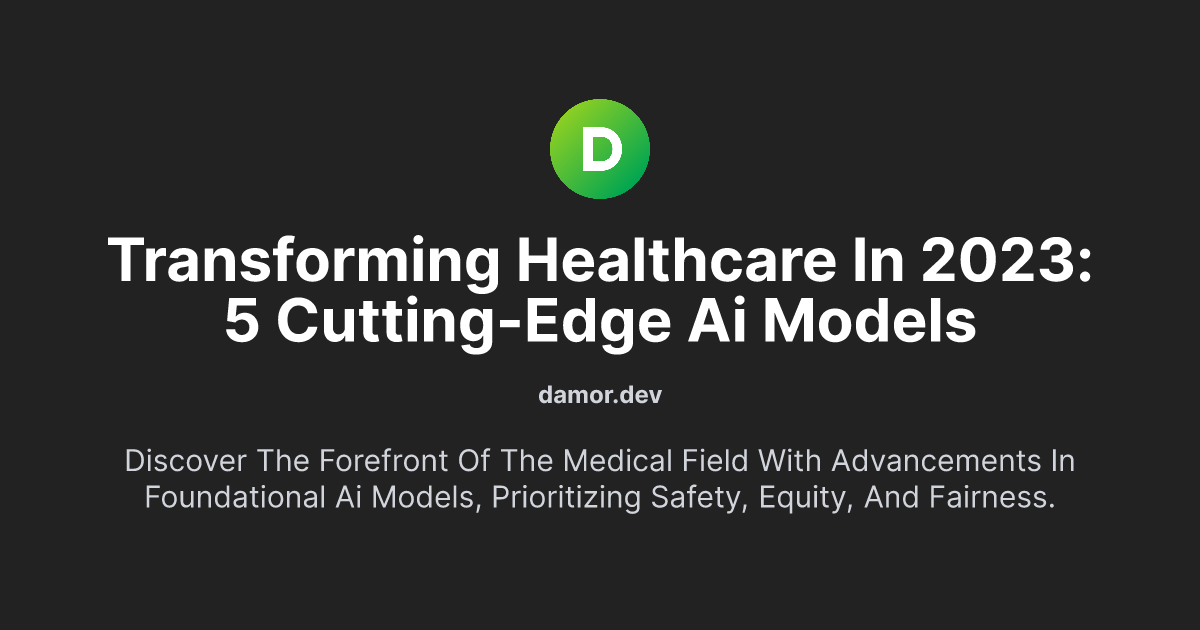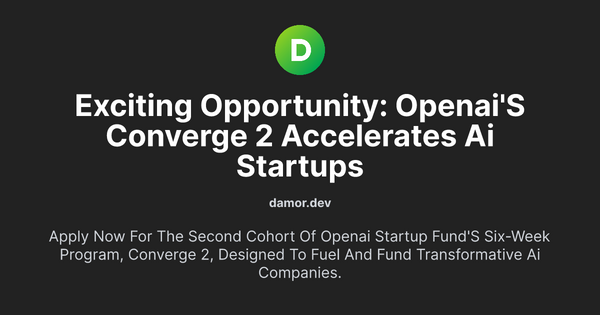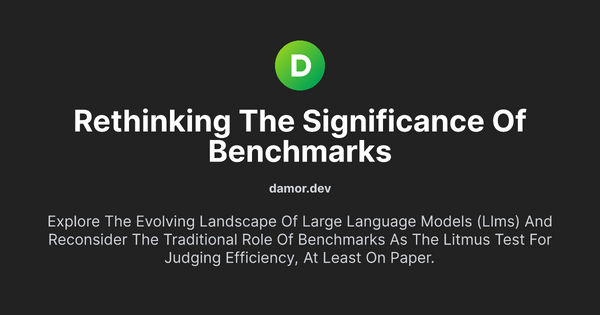Transforming Healthcare in 2023: 5 Cutting-Edge AI Models

5 Game-Changing AI Models in 2023 for Better Healthcare
In 2023, AI is revolutionizing healthcare with models designed for safety, equity, and fairness. Let's dive into five key models reshaping the medical landscape:
1. Med-PaLM 2: Your Medical Question Answered
- Med-PaLM is an AI language model tailored for medical queries.
- The latest version, Med-PaLM 2, boasts an impressive 86.5% accuracy on USMLE-style questions.
- Ongoing testing aims to explore its potential applications further.
2. AlphaFold: Unlocking Protein Secrets
- Developed by DeepMind, AlphaFold predicts protein structures with unparalleled accuracy and speed.
- In collaboration with EMBL-EBI, it has released over 200 million protein structure predictions, expanding our understanding of biology.
- This AI system is recognized by the CASP community, challenging teams to predict protein structures accurately.
3. Bioformer: NLP Power for Biomedical Text
- Adapting BERT for the biomedical domain, Bioformer is a compact model designed for efficient biomedical text mining.
- Trained on PubMed abstracts and full-text articles, Bioformer's two models, Bioformer8L and Bioformer16L, reduce computational costs by 60% compared to BERTBase, making it more accessible for large-scale natural language processing tasks.
4. RoseTTAFold All-Atom: Modeling Beyond Proteins
- RoseTTAFold is a deep-learning program modeling protein structures.
- The 2023 upgrade, RoseTTAFold All-Atom, goes beyond proteins to model full biological assemblies, including DNA, RNA, small molecules, metals, and covalent modifications of proteins.
- This capability is invaluable for understanding how proteins and small-molecule drugs interact, aiding drug discovery research.
5. ChatGLM-6B: Affordable Healthcare Conversations
- Addressing challenges in deploying dialogue models for hospitals, ChatGLM-6B is a language model fine-tuned using medical dialogues in Chinese.
- Trained in just 13 hours on a single A100 80G, it's a cost-effective solution for healthcare purposes.
- Generating answers aligned with human preference, ChatGLM-6B uses low-rank adaptation (LoRA) with only 7 million trainable parameters, making it accessible and beneficial for medical dialogue applications.


![[Solved] ZlibError:zlib:
unexpected end of file - payload](/content/images/size/w600/2024/02/Screenshot-2024-02-18-143905.png)


